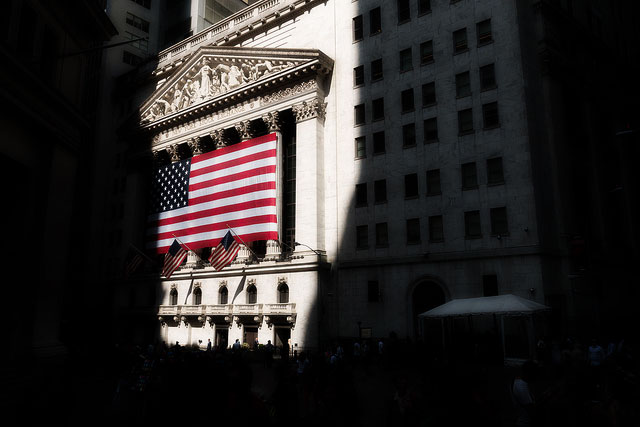
Investment bankers look set to water down a Dodd-Frank rule designed to snuff out the proliferation of toxic financial products.
Players on Wall Street are preparing to minimize the impact of the so-called “skin in the game” rule by setting up affiliated companies to satisfy requirements on risk-sharing, according to The Wall Street Journal. The legal framework, which was finalized by the Obama administration in 2014, is set to take effect on Christmas Eve.
The regulations require those who sell Collateralized Debt Obligations (CDOs) to hold onto 5 percent of the instruments they create — to increase the chances that financial firms care about the long-term health of assets that underpin their own products.
But private equity firm Blackstone Group and HPS Investment Partners, a JP Morgan subsidiary, will establish companies to create workarounds to those guidelines.
“HPS and some others would own roughly 51 percent of the new firms, and outside investors would own the rest, according to market participants,” The Wall Street Journal reported Monday. “That means their effective exposure would be halved.”
The Journal said that the “skin in the game” rules themselves permit the companies to hold the 5 percent CDO stake “via majority-owned affiliates.” The distinction could see Blackstone own as little as 20 percent of its new creation, as the paper noted, “because the rules don’t define ‘majority-owned’ in purely mathematical terms.”
CDOs were among the financial innovations that helped banks pool mortgage-backed securities last decade, before the banking collapse of 2008. Many of those complex packages masked risky lending practices, undetected or ignored by Bush administration regulators and credit ratings agencies.
In numerous cases, banks were well aware that CDOs they were selling were being misrepresented, as former Sen. Carl Levin (D-Mich.) noted during an April 2010 hearing.
“Quoting a Goldman email: ‘boy that Timberwolf was one shitty deal,'” Levin said. “How much of that shitty deal did you sell?” he asked then-former Goldman partner Daniel Sparks.
“You knew it was a shitty deal and that’s what your e-mails show,” Levin continued. “How much of this shitty deal did you continue to sell to your clients?”
The housing market isn’t as exposed to CDOs as it was last decade. As WSJ noted, private lenders have largely eschewed riskier borrowers since 2008.
But, the paper remarked, the instruments “play a crucial role in the financial system, underpinning everything from credit-card debt to auto loans.” US firms have issued about $270 billion in CDOs since 2014.
Join us in defending the truth before it’s too late
The future of independent journalism is uncertain, and the consequences of losing it are too grave to ignore. To ensure Truthout remains safe, strong, and free, we need to raise $27,000 in the next 24 hours. Every dollar raised goes directly toward the costs of producing news you can trust.
Please give what you can — because by supporting us with a tax-deductible donation, you’re not just preserving a source of news, you’re helping to safeguard what’s left of our democracy.